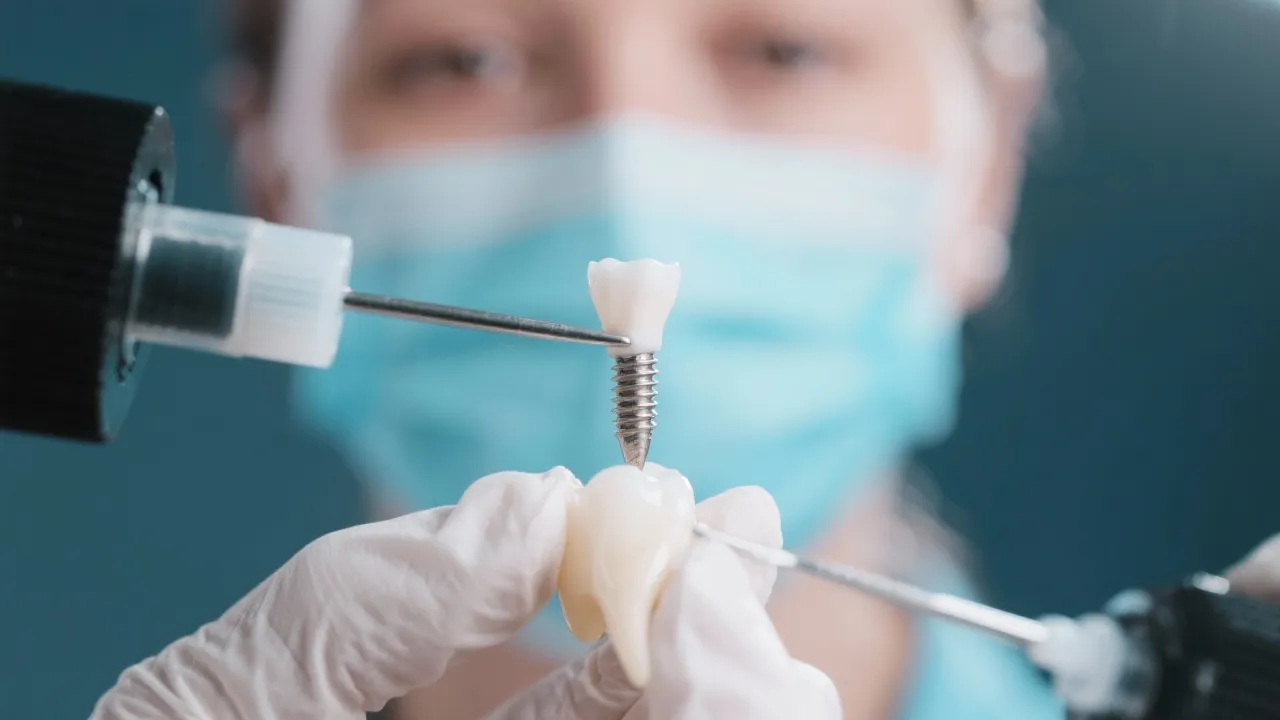A Comprehensive Guide to Dental Implants
This guide delves into the world of dental implants, highlighting their significance in modern dentistry. Implantswiss is a key player in the dental industry, providing innovative solutions for tooth replacement. This article explores the importance of dental implants, discusses how to access affordable options, and evaluates costs across different countries. Additionally, a comparison of relevant online resources and detailed price ranges for English, Spanish, and Portuguese-speaking countries are provided.

The Significance of Dental Implants
Dental implants have revolutionized the field of dentistry, offering a durable and aesthetically pleasing solution to missing teeth. These small fixtures, typically made of titanium, are surgically inserted into the jawbone to act as roots for replacement teeth. Implantswiss, a notable entity in this realm, has pioneered several advancements, facilitating better outcomes for patients seeking tooth restoration. The importance of dental implants lies in their ability to restore functionality, improve oral health, and enhance the overall quality of life.
The significance of dental implants cannot be overstated, as they not only restore appearance but also improve functionalities such as biting and chewing. Unlike dentures or bridges, which can shift and slip, dental implants are securely anchored in the jawbone, providing a stable and permanent solution to tooth loss. Most importantly, they prevent the bone loss associated with missing teeth, maintaining facial structure and preventing further dental issues.
Furthermore, dental implants can offer psychological benefits as well. A full set of teeth contributes to confidence, enhancing self-esteem in social situations. Many patients report feeling more outgoing and willing to smile after receiving their implants. This psychological boost can lead to improved interpersonal relationships and an overall enhancement in one’s quality of life.
Accessing Affordable Dental Implants in English-speaking Countries
Finding low-cost dental implants in English-speaking countries can be challenging but not impossible. Several platforms offer state-of-the-art solutions at competitive prices. Recognized websites such as Dental Views focus on elucidating the benefits and costs associated with dental implants, offering insights into different treatment modalities. Atlantic Dental Group adds to this by providing a comprehensive suite of dental services, ensuring that implants and other essential treatments are accessible to a wide demographic. For those interested in dental tourism, DentaVacation provides a plethora of options for treatments abroad, often at lower costs than domestic procedures.
While price is a significant factor for many patients, it’s imperative also to consider the quality of care offered by the providers. High-quality materials and experienced professionals can make a considerable difference in the long-term success of dental implants. Therefore, it is recommended that patients look into the qualifications and experiences of dental surgeons and their supporting teams before making a choice.
| Website | Focus |
|---|---|
| Dental Views | Low-cost dental implant solutions |
| Atlantic Dental Group | Wide range of dental services |
| DentaVacation | Dental tourism opportunities |
Source: Dental Views, Atlantic Dental Group, DentaVacation
Step-by-Step Process for Acquiring Low-Cost Dental Implants
Securing affordable dental implants involves several strategic steps:
- Research clinics or providers like Implantswiss, which offer competitive pricing without compromising on quality. Make sure to check their reviews and patient testimonials, as these can provide valuable insights into their service quality.
- Consult with local dental associations to identify providers certified to perform implant surgery. Local dental boards will have lists of qualified professionals, ensuring your safety during the procedure.
- Explore online reviews and testimonials to ensure the provider's credibility and expertise in implant placement. Websites like Healthgrades or Zocdoc can be helpful to find detailed reviews about dental practitioners.
- Consider availing insurance covers that include dental implants and verify the extent of coverage with providers like ADHP. Many dental insurance plans have specific clauses about implants, so ensuring you understand your coverage can save you a significant amount.
- If considering dental tourism, evaluate the cost-benefit ratio, including travel expenses, with platforms like DentaVacation. Look beyond the initial price of the procedure and factor in accommodation, food, and transportation, which can impact overall costs.
- Schedule a preliminary consultation with your chosen provider to discuss your specific needs and treatment plan. This meeting is vital to ensuring you're comfortable with the process and fully understand what to expect.
Cost Ranges for Dental Implants in Various Countries
The cost of dental implants varies widely across different regions due to factors such as location, technology, and clinic expertise. Here are the ranges:
English-speaking countries:
- United States: $3,000 - $6,000 USD
- United Kingdom: £2,000 - £2,500 GBP
- Australia: AU$3,500 - $6,500 AUD
- Canada: CA$3,000 - CA$5,500 CAD
Spanish-speaking countries:
- Spain: €1,500 - €2,500 EUR
- Chile: CLP$800,000 - CLP$1,500,000 CLP
- Mexico: $15,000 - $25,000 MXN
- Colombia: $2,000,000 - $4,000,000 COP
- Peru: S/3,000 - S/6,000 PEN
- Argentina: $80,000 - $150,000 ARS
Portuguese-speaking countries:
- Brazil: R$3,000 - R$8,000 BRL
- Portugal: €1,000 - €2,000 EUR
Despite the significant cost differences internationally, patients should consider the potential savings of traveling for dental treatment in addition to the quality and expertise offered by practitioners in various countries. While lower costs can be found abroad, it’s crucial to evaluate the provider’s reputation, the quality of materials used, and follow-up care to ensure a positive treatment outcome.
FAQs About Dental Implants
Q: What is the lifespan of dental implants?
A: Dental implants can last a lifetime with proper care and maintenance, though the crown, bridge, or denture supported by the implant typically needs to be replaced after 10 to 15 years. Regular dental visits for check-ups are crucial for monitoring the integrity of the implant and associated restorations.
Q: Are dental implants painful?
A: Patients usually report minimal discomfort during the implant procedure, thanks to local anesthesia and sedation options. Post-operative pain is typically managed with over-the-counter pain relievers. Most patients resume their normal activities within a few days.
Q: How long does the implant process take?
A: The duration depends on various factors, including the patient's oral health, the need for bone grafting, and the type of implant procedure. Generally, the process can take several months from start to finish, including healing time, which can range from a few weeks to several months. The timeline can be expedited by advances such as immediate loading implants, which allow for the placing of a temporary tooth on the same day as surgery.
Complications and Considerations in Dental Implants
While dental implants are considered safe and reliable, like any surgical procedure, they carry potential risks and complications. Patients should thoroughly discuss these with their dental provider prior to surgery. Common complications include:
- Infection: There’s a risk of infection at the implant site, which can lead to implant failure if not treated promptly. Patients are often prescribed antibiotics post-surgery to mitigate this risk.
- Nerve Damage: Improper positioning of the implant can lead to nerve damage, resulting in pain, tingling, or numbness in the gums, lips, or chin. A skilled surgeon will assess the anatomy of your jaw thoroughly to minimize this risk.
- Sinus Issues: For implants placed in the upper jaw, there can be a risk of sinus perforation, particularly if there is not enough bone height. In some cases, a sinus lift procedure is required before implant placement.
- Implant Failure: While rare, implants can fail due to various reasons such as insufficient bone density, unfavorable conditions in the mouth, or chronic health issues affecting healing.
Anyone considering dental implants should assess their eligibility, particularly individuals with chronic diseases like diabetes or osteoporosis, as these conditions can affect healing. Moreover, a detailed medical history should be provided to the dental professional, ensuring transparency about any potential issues that may complicate the treatment.
Post-Operative Care and Maintenance of Dental Implants
After getting dental implants, proper care and maintenance are essential to ensure their longevity. Maintaining good oral hygiene significantly contributes to the success of dental implants. Here are some tips:
- Regular Brushing and Flossing: Patients should brush their teeth at least twice a day and floss daily. Specialized cleaning devices, like interdental brushes, can be beneficial for cleaning around the implants.
- Routine Dental Check-ups: Regular visits to the dentist are critical for monitoring the health of implants and surrounding tissues. A dental professional will check for signs of infection and other issues during these appointments.
- Avoiding Tobacco Products: Smoking can significantly decrease the success of dental implants due to impaired healing. It is highly advised to quit smoking to enhance recovery and health outcomes.
- Dietary Considerations: After surgery, patients should adhere to a soft diet to avoid placing undue stress on the implants while they are healing. Gradually introducing harder foods should only happen when the dentist approves.
Conclusion
As dental technology advances, the accessibility and effectiveness of dental implants continue to improve. By understanding the cost factors and available options, patients can make informed decisions about their oral health care. Implantswiss remains a key contributor to innovation in this field, driving advancements and improving patient outcomes.
The journey to regain one's smile can feel daunting; however, with improved access to affordable dental implants, patients are more empowered than ever to seek the treatment they need. Investing in dental implants not only translates to enhanced aesthetic appearance but also contributes significantly to overall oral health and personal well-being.
Dental implants could be a considerable investment, but their long-term benefits often outweigh the initial costs. Patients should consider their own dental health needs, personal circumstances, and long-term goals while planning for dental procedures. Engaging in thorough research, consultations, and decision-making leads to a successful dental implant experience.
Disclaimer: The above information is sourced from online resources as of October 2023. Dental implant prices are for reference only and may vary by region, clinic, and doctor.
References: Dental Views, Atlantic Dental Group, DentaVacation, ADHP
-

A Guide to Cost-Efficient Small Electric Cars for Seniors
-

Mastering Debt Consolidation: Boost Your Credit Score and Manage Interest Rates
-

Your Guide to Loans, Credit Checks, and Interest Rates
-

Affordable Independent Living: Finding the Right Senior Housing
-

Guide to Senior Living Apartments: Affordable and Comfortable Environments










